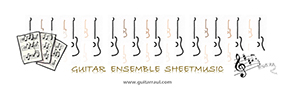Kim Nguyen Tran
https://www.cglib.org/brouwer-co
Leo Brouwer has taken on many roles in his musical career—composer, conductor, teacher, essayist—but his career began as a guitarist. Regarded today as one of the foremost living composer-guitarists, Brouwer has contributed an essential body of work to the classical guitar repertoire. His Estudios Sencillos are a part of the basic guitar technique method (heavy-metal guitarist Randy Rhoads even quoted Estudio VI while recording with Ozzy Osbourne) and his solo guitar piece El Decameron Negro is a standard in the contemporary repertory. Apart from his contributions to guitar repertory, he is regarded as one of the most important living figures in contemporary Cuban music and culture. A prolific composer, he has written in many genres including orchestral and chamber works, ballet scores, instrumental concerti, popular jazz-rock idioms, and over eighty film scores. Although Brouwer’s music spans many musical styles, his Cuban roots are undeniably present in his works.
It is generally accepted by scholars of Brouwer’s music that his compositions fall into three general stylistic periods, although opinions on start and end dates vary. The first period includes his early song arrangements and original solo pieces, both written for and at the guitar. Cuban folk music had a strong influence on the works from this first period. In his middle period, Brouwer showed leanings toward the avant-garde, using aleatoric elements. He also experimented with extended technique and unconventional timbres. The third period began in the 80’s, when Brouwer described finding a “new simplicity.” In these latest works, he returned to tonality and modality, incorporated minimalist elements, and often included a programmaticcomponent. What prompted these broad stylistic changes in Brouwer’s music? This paper explores the changing political, social, and cultural climate in Cuba as Brouwer developed his music. Despite his frequent traveling abroad to perform, conduct, and teach, Brouwer has always returned to his native Cuba, making clear that Cuba is his home and base. This paper seeks to follow Brouwer as he navigated through his experiences in Cuba and abroad, both rejecting and synthesizing the new ideas that he encountered into his own musical language.





